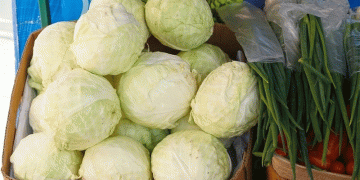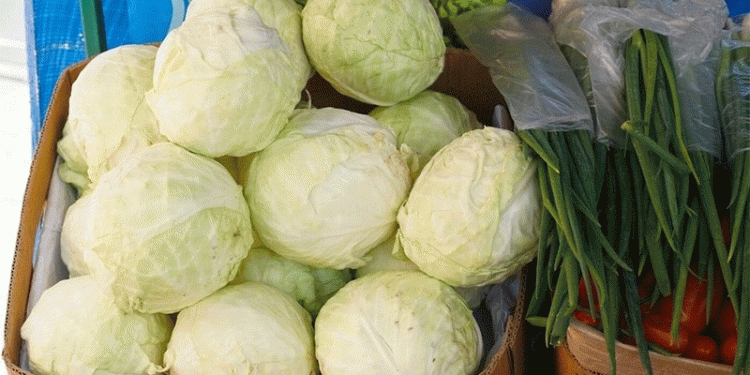The Zabaykalsky region of Russia is experiencing a massive influx of imported vegetables, with new data from the Rosselkhoznadzor (Russian Federal Service for Veterinary and Phytosanitary Surveillance) revealing a more than 100% increase in the volume of cabbage imported from China compared to the previous year. Since the start of 2025, inspectors at the Zabaikalsk multilateral automotive checkpoint have monitored 12,957 tons of various cabbage types, including white cabbage, Chinese cabbage, broccoli, pak choi, and cauliflower.
This surge in trade, while indicative of market demand, has unveiled a significant and growing biosecurity challenge. The mandatory laboratory screenings conducted by the Zabaikalsky branch of the Federal Grain Quality and Safety Center confirmed the presence of quarantine pests in 73 separate cases. The identified organisms represent a severe threat to regional agriculture: they included the Western Flower Thrips (Frankliniella occidentalis) and, even more concerning, the Palmi Thrips (Thrips palmi).
The interception of Thrips palmi is particularly alarming for agronomists and farmers. Like its Western relative, it is a highly polyphagous and destructive pest. According to the European and Mediterranean Plant Protection Organization (EPPO), T. palmi attacks a wide range of field and greenhouse crops, including cucumbers, peppers, eggplants, and melons. It causes direct feeding damage and is a known vector for plant viruses like Watermelon silver mottle virus and Melon yellow spot virus. Its establishment could devastate local vegetable production. A 2023 global review in the Annals of Applied Biology emphasized that T. palmi is one of the most adaptable and invasive thrips species, whose management is complicated by widespread insecticide resistance.
The response from phytosanitary authorities was swift and decisive. In full compliance with Russian legislation and upon request from the economic operators, all infested cabbage was promptly sterilized or destroyed to prevent the introduction and spread of these pests. This action is a critical component of the “systems approach” to biosecurity, where border interceptions form the last line of defense protecting domestic agriculture.
The situation in Zabaykalsky Krai presents a classic trade-off between economic access and biological safety. The dramatic rise in cabbage imports fulfills consumer needs but simultaneously elevates the risk of introducing devastating invasive pests that could cripple local farming. This underscores the non-negotiable importance of maintaining robust, well-funded, and scientifically advanced phytosanitary inspection systems at all points of entry. For the agricultural community, this serves as a critical reminder of the shared responsibility to support strong biosecurity measures and to remain vigilant in monitoring crops for signs of these destructive pests, whose establishment would far outweigh the short-term benefits of increased import volumes.































